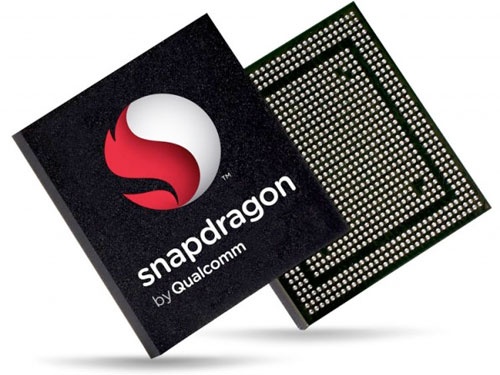Competition Between Qualcomm And Samsung Heats Up As Qualcomm Announces Cat9 LTE Support
Not to be outdone by Samsung, which we've just learned recently is working on 450 Mbps Cat.10 LTE for its next-generation Exynos chip, Qualcomm also announced today that it's going to update its Snapdragon 810 SoC to support Cat9 LTE, with the same 450 Mbps download speeds.
The difference between the two categories is that Cat10 will support 100 Mbps upload speeds as well, while Cat9 will only support half of that (50 Mbps). This means Samsung's own LTE modem will still take the LTE crown next year in terms of performance, but the difference between its LTE modem and Qualcomm's won't be as big as before, when Snapdragon 810 only had official support for Cat6 (300 Mbps downlink/50 Mbps uplink).
Qualcomm may still hold an advantage over Samsung's LTE in how many bands its modem can support. Qualcomm has been in the LTE modem business longer than anyone else, and it has had time to add more bands to its modems. However, this shouldn't be much of an advantage in this case, because it's unlikely Samsung is planning to sell its LTE modems to other companies this soon. At the same time, it's guaranteed that Samsung will support the necessary bands in whatever countries it intends to sell Galaxy devices using this Cat10 modem.
It's becoming more important than ever for Qualcomm to maintain its competitive edge. Other companies are already starting to launch high-end 64-bit chips, such as Apple, Nvidia and Samsung, while Qualcomm's own high-end 64-bit chip is still scheduled for the "first half of 2015" (most likely in the second quarter).
Not only that, but Qualcomm has now started using stock ARM CPU designs in its SoCs instead of its own custom cores. At the same time, Samsung is working on its own fully in-house chip, which could represent a two-fold threat for Qualcomm.
On one hand, Samsung is a big customer of Qualcomm because it tends to sell many devices. This relationship could end if Samsung starts using solely its own chips in its devices (at least the high-end ones).
On the other hand, Samsung could become an even bigger threat to Qualcomm if it gets serious about its mobile chip business and starts selling those chips to other companies. Qualcomm dominates both the mobile processor and LTE modem markets because there haven't been any real alternatives for the past few years. However, chances are many OEMs are already looking to differentiate from their competitors by using other chips that are just as good or better than Qualcomm's chips.
Get Tom's Hardware's best news and in-depth reviews, straight to your inbox.
Samsung is not quite in the position to threaten Qualcomm just yet, because only next year will it begin to put all the pieces together to do that, but it may not be long before that threat materializes. Qualcomm will need to become more proactive, and not as reactive, as it's been this year, when its competitors one-upped the company this year with high-end 64-bit ARMv8 chips and will probably do it again with support for higher-level LTE categories.
Follow us @tomshardware, on Facebook and on Google+.
Lucian Armasu is a Contributing Writer for Tom's Hardware US. He covers software news and the issues surrounding privacy and security.
-
EasyLover Samsung is aggressively pursuing the future expansion in tech and at various fronts. Good luck Qualcomm for stiff competition.Reply
